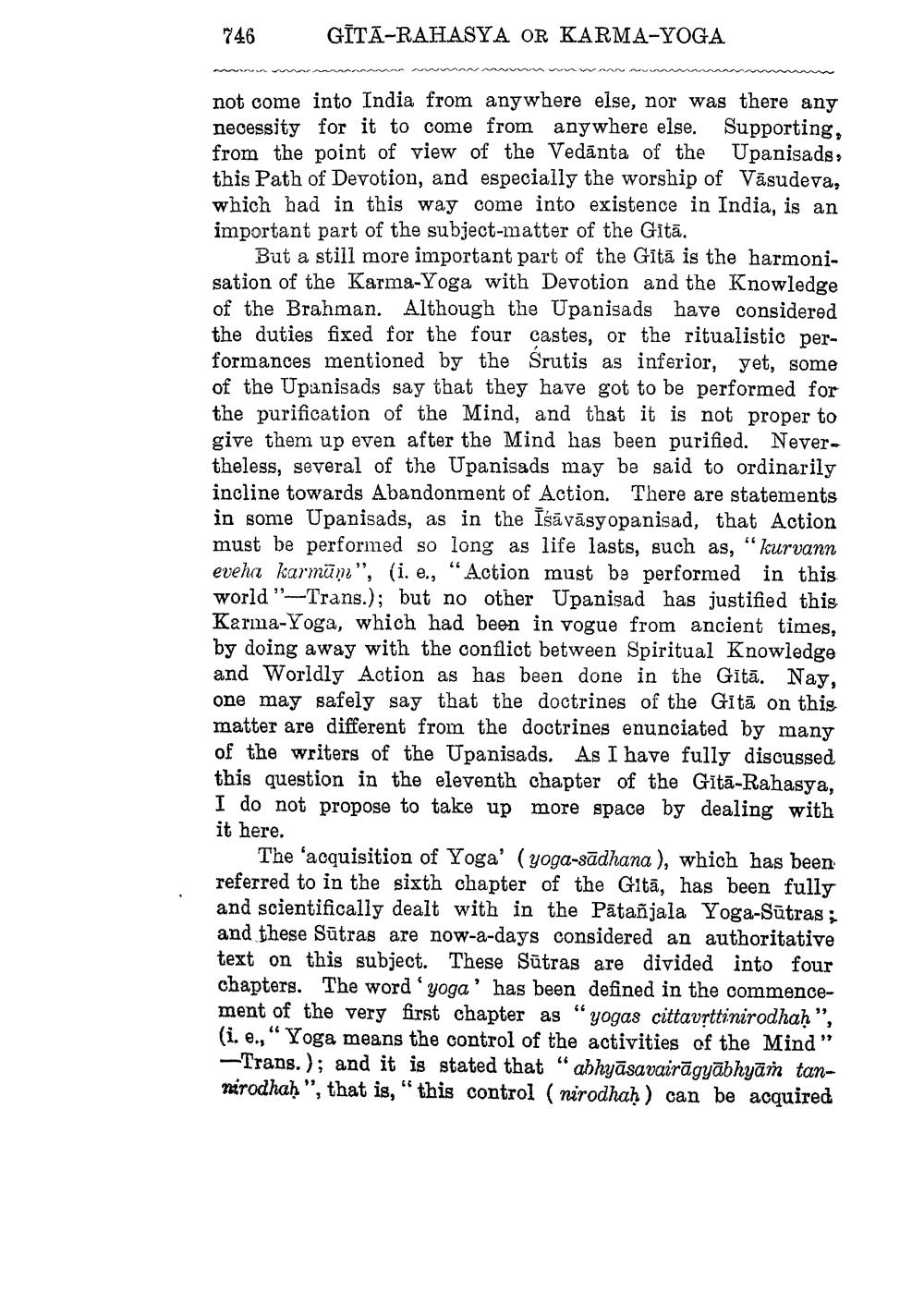________________
1746
GITA-RAHASYA OR KARMA-YOGA
not come into India from anywhere else, nor was there any necessity for it to come from anywhere else. Supporting, from the point of view of the Vedānta of the Upanisads, this Path of Devotion, and especially the worship of Vasudeva, which had in this way come into existence in India, is an important part of the subject-matter of the Gitä.
But a still more important part of the Gītā is the harmonisation of the Karma-Yoga with Devotion and the Knowledge of the Brahman. Although the Upanisads have considered the duties fixed for the four castes, or the ritualistic performances mentioned by the Srutis as inferior, yet, some of the Upanisads say that they have got to be performed for the purification of the Mind, and that it is not proper to give them up even after the Mind has been purified. Nevertheless, several of the Upanisads may be said to ordinarily incline towards Abandonment of Action. There are statements in some Upanisads, as in the īśāvāsyopanisad, that Action must be performed so long as life lasts, such as, "kurvann eveha karmūm”, (i. e., “Action must be performed in this world "--Trans.); but no other Upanisad has justified this Karma-Yoga, which had been in vogue from ancient times, by doing away with the conflict between Spiritual Knowledge and Worldly Action as has been done in the Gītā. Nay, one may safely say that the doctrines of the Gitā on this matter are different from the doctrines enunciated by many of the writers of the Upanisads. As I have fully discussed this question in the eleventh chapter of the Gitā-Rahasya, I do not propose to take up more space by dealing with it here.
The 'acquisition of Yoga' (yoga-sādhana ), which has been referred to in the sixth chapter of the Gitā, has been fully and scientifically dealt with in the Patañjala Yoga-Sūtras; and these Sūtras are now-a-days considered an authoritative text on this subject. These Sūtras are divided into four chapters. The word 'yoga' has been defined in the commencement of the very first chapter as “yogas cittavrttinirodhaḥ”, (i. e., “Yoga means the control of the activities of the Mind" -Trans.); and it is stated that "abhyāsavairāgyābhyām tanmirodhah", that is, "this control (nirodhah ) can be acquired




